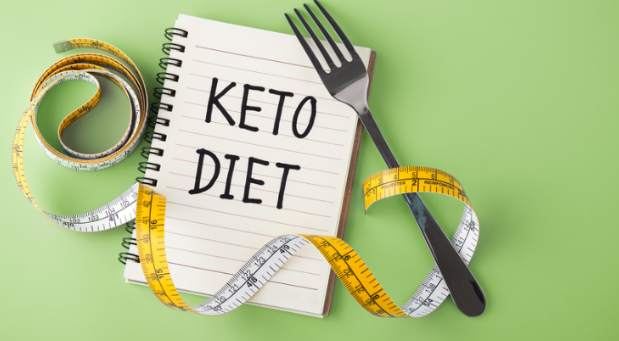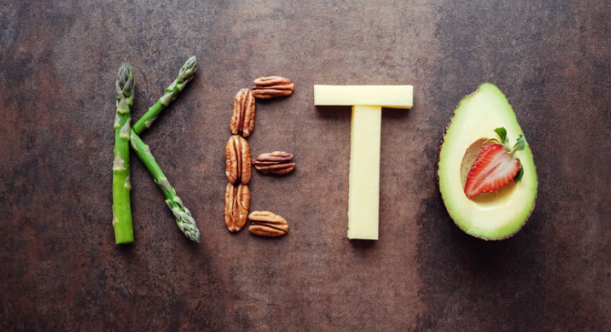
Is corn a good choice for those following a keto diet? This is a question that often perplexes individuals looking to maintain ketosis while still enjoying their favorite foods. Corn, with its natural sweetness and versatility, can be found in many dishes and snacks. However, when it comes to the keto diet, the carbohydrate content of corn raises concerns.
Corn is relatively high in carbohydrates compared to other low-carb vegetables typically consumed on the keto diet. A single medium-sized ear of corn contains around 20 grams of net carbs, which can quickly add up and potentially kick you out of ketosis if consumed in large quantities. The goal of the keto diet is to keep your body in a state of ketosis, where it burns fat for fuel instead of glucose derived from carbohydrates.
Corn for Keto
-
Health Benefits of the Keto Diet
The keto diet has gained popularity not only for its potential weight loss benefits but also for its positive impact on overall health. By drastically reducing carbohydrate intake and increasing fat consumption, the body enters a state called ketosis, where it relies on stored fat as its primary source of energy.
One major benefit of the keto diet is improved blood sugar control. When we limit our intake of carbohydrates, our blood sugar levels become more stable, which can be especially beneficial for individuals with diabetes or insulin resistance. Studies have shown that following a ketogenic diet can lead to significant reductions in HbA1c levels, a marker used to measure long-term blood sugar control.
Furthermore, research suggests that the keto diet may have anti-inflammatory effects. Chronic inflammation is linked to various health conditions, such as heart disease, cancer, and neurodegenerative disorders. By reducing carbohydrate intake and promoting ketosis, the keto diet may help decrease inflammation in the body.
-
Weight Loss Potential of the Keto Diet
Weight loss is one of the main reasons why people turn to the keto diet. The low-carbohydrate nature of this eating plan helps suppress appetite and increase satiety levels due to higher fat and protein consumption.
When you consume fewer carbs and enter ketosis, your body starts burning stored fat for fuel instead of relying on glucose from carbohydrates. This shift in metabolism can lead to significant weight loss over time.
Several studies have shown that individuals following a ketogenic diet experience greater initial weight loss compared to those on traditional low-fat diets. Additionally, because fats provide more calories per gram than carbs or protein do, they help create a feeling of fullness and satisfaction while consuming fewer overall calories.
-
Improved Mental Clarity and Focus
Another notable benefit reported by many individuals who follow a keto lifestyle is improved mental clarity and focus. When in ketosis, the brain starts utilizing ketones as an alternative fuel source, which some people find enhances cognitive function.
The ketogenic diet has been found to have potential neuroprotective effects. Researchers believe that ketones may provide a more efficient energy source for brain cells, leading to improved cognitive performance and protection against neurodegenerative diseases like Alzheimer’s and Parkinson’s.
Corn’s Impact on Ketosis
When it comes to following a ketogenic diet, corn is often seen as a controversial choice. While it may be tempting to indulge in that buttery, sweet corn on the cob at summer barbecues, many keto enthusiasts wonder if it’s worth the potential impact on their ketosis. Let’s delve into the topic and explore whether or not corn can fit into a ketogenic lifestyle.
The Impact of Corn on Blood Sugar Levels
One of the primary concerns with consuming corn while following a keto diet is its effect on blood sugar levels. Corn has a relatively high glycemic index compared to other low-carb vegetables commonly consumed in the ketogenic diet. This means that eating corn can cause a rapid spike in blood sugar levels, potentially kicking you out of ketosis.
In conclusion, when it comes to incorporating corn into a keto diet plan, it’s crucial to consider its carbohydrate content alongside its nutritional value. While there are some redeeming qualities in terms of vitamins and minerals present in corn, individuals aiming for deep ketosis may want to choose lower-carb options instead. As always, consulting with a healthcare professional or nutritionist can provide personalized guidance tailored to your specific dietary needs.

